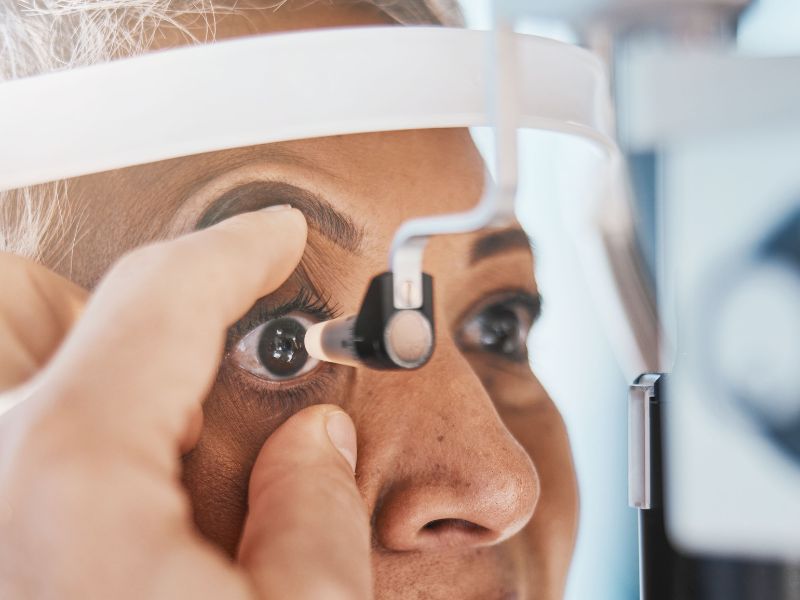What are the 4 Ps of Eye Care?
Eye care is an essential aspect of overall health that often gets overlooked. Our eyes are not just windows to the world; they are vital organs that require proper care and attention. To help you navigate the complexities of maintaining good eye health, we can break it down into four fundamental principles known as the “4 Ps of Eye Care”: Prevention, Protection, Professional Care, and Proper Nutrition. Let’s explore each of these components in detail.
1. Prevention
Prevention is the cornerstone of effective eye care. Taking proactive steps can significantly reduce your risk of developing eye diseases and conditions. Here are some preventive measures you can incorporate into your daily routine:
Regular Eye Exams
One of the most important aspects of prevention is scheduling regular eye exams with an optometrist or ophthalmologist. These professionals can detect early signs of eye diseases such as glaucoma, cataracts, or macular degeneration before they become serious issues. The American Optometric Association recommends that adults have a comprehensive eye exam every two years, while those over 60 should have annual exams.
UV Protection
Just like your skin, your eyes can suffer from harmful UV rays emitted by the sun. Wearing sunglasses with 100% UV protection can help shield your eyes from these damaging rays and reduce the risk of cataracts and other sun-related conditions.
Screen Time Management
In our digital age, many people spend hours in front of screens—whether it’s computers, tablets, or smartphones. This prolonged exposure can lead to digital eye strain (DES), characterized by symptoms like dry eyes, blurred vision, and headaches. To prevent DES:
- Follow the 20-20-20 rule: Every 20 minutes spent looking at a screen should be followed by looking at something 20 feet away for at least 20 seconds.
- Adjust your screen settings to reduce glare and increase text size.
- Ensure proper lighting in your workspace to minimize strain on your eyes.
2. Protection
Protecting your eyes from potential hazards is another crucial aspect of effective eye care. Various environmental factors can pose risks to our vision:
Safety Eyewear
If you’re involved in activities that could potentially harm your eyes—such as construction work, sports, or even certain hobbies—wearing appropriate safety eyewear is essential. Protective goggles or glasses made from polycarbonate lenses can provide significant protection against flying debris or impact.
Avoiding Harmful Substances
Be mindful of exposure to harmful chemicals found in household cleaners or industrial products. Always wear protective eyewear when handling these substances and ensure adequate ventilation in enclosed spaces.
Contact Lens Care
For those who wear contact lenses, proper hygiene is critical for protecting eye health. Always wash your hands before handling lenses and follow guidelines for cleaning and storing them to prevent infections.
3. Professional Care
While preventive measures are vital for maintaining good vision, professional care plays an equally important role in comprehensive eye care:
Choosing the Right Eye Care Professional
Finding a qualified optometrist or ophthalmologist is crucial for receiving quality care tailored to your specific needs. Look for professionals who have good reviews and credentials that match your requirements—whether it’s routine check-ups or specialized treatments.
Follow-Up Appointments
If you’ve been diagnosed with an eye condition or have undergone surgery (such as LASIK), attending follow-up appointments is essential for monitoring progress and ensuring optimal recovery.
Staying Informed About Eye Health
Stay updated on advancements in eye care treatments and technologies by engaging with reputable sources such as medical journals or professional organizations dedicated to ophthalmology.
4. Proper Nutrition
What you eat has a significant impact on not only overall health but also specifically on eye health:
Nutrients Essential for Eye Health
Certain vitamins and minerals play crucial roles in maintaining healthy vision:
- Vitamin A: Essential for good night vision; found in carrots, sweet potatoes, and leafy greens.
- Omega-3 Fatty Acids: Beneficial for dry eyes; found in fish like salmon and flaxseeds.
- Lutein & Zeaxanthin: Antioxidants that help filter harmful blue light; found in green leafy vegetables like kale and spinach.
Incorporating these nutrients into a balanced diet will support long-term eye health.
Hydration
Staying hydrated also contributes to maintaining moisture levels in the eyes which helps prevent dryness—a common issue faced by many individuals today due to environmental factors or prolonged screen time.
Conclusion
Understanding the “4 Ps”—Prevention, Protection, Professional Care, and Proper Nutrition—is essential for anyone looking to maintain optimal eye health throughout their life. By adopting these principles into your daily routine, you not only safeguard against potential issues but also enhance your overall well-being through better vision quality.
Remember that taking small steps today can lead to significant benefits tomorrow! Prioritize regular check-ups with an expert while being proactive about prevention strategies at home; this holistic approach will ensure that you enjoy clear sight well into old age!
Visit our blog page for more articles!

